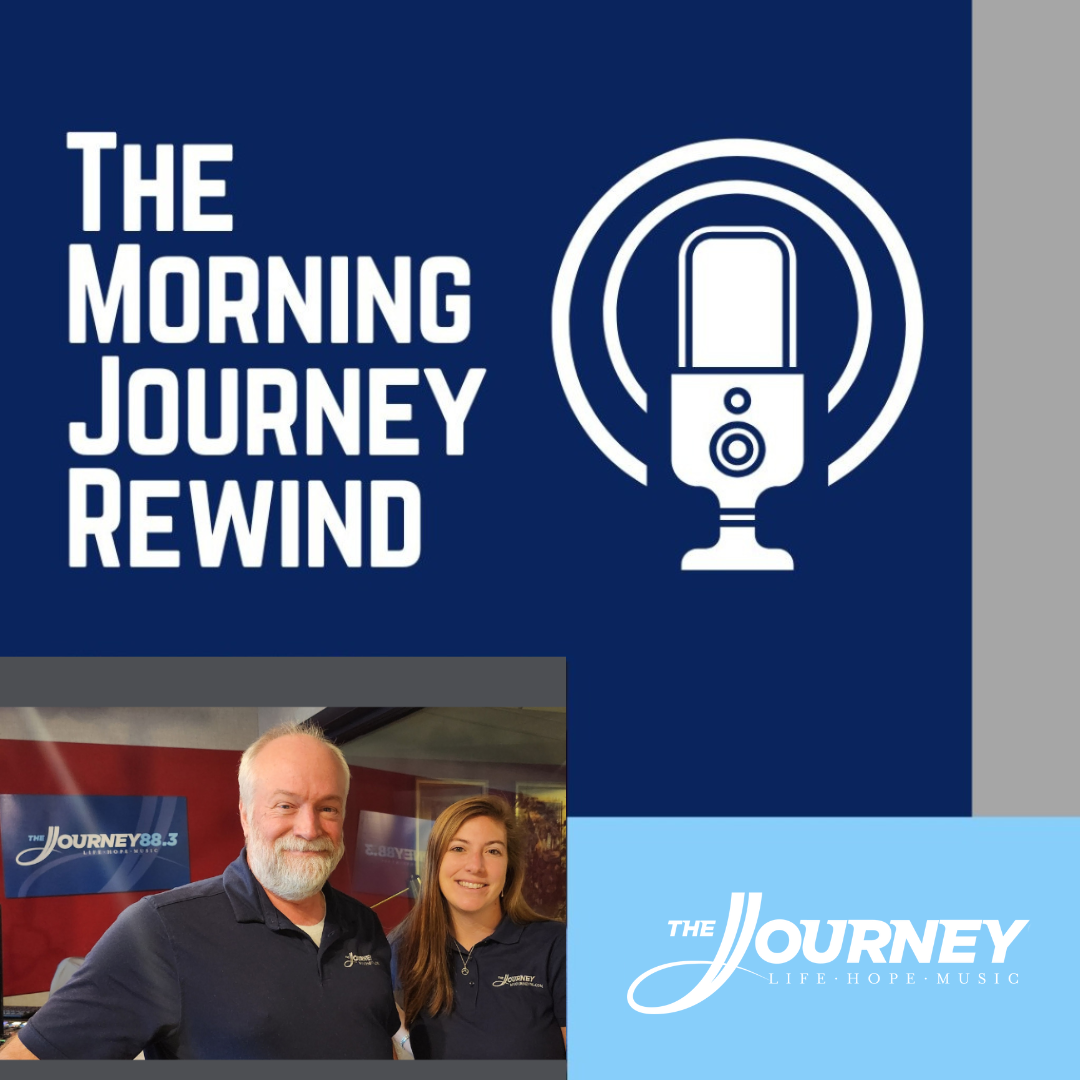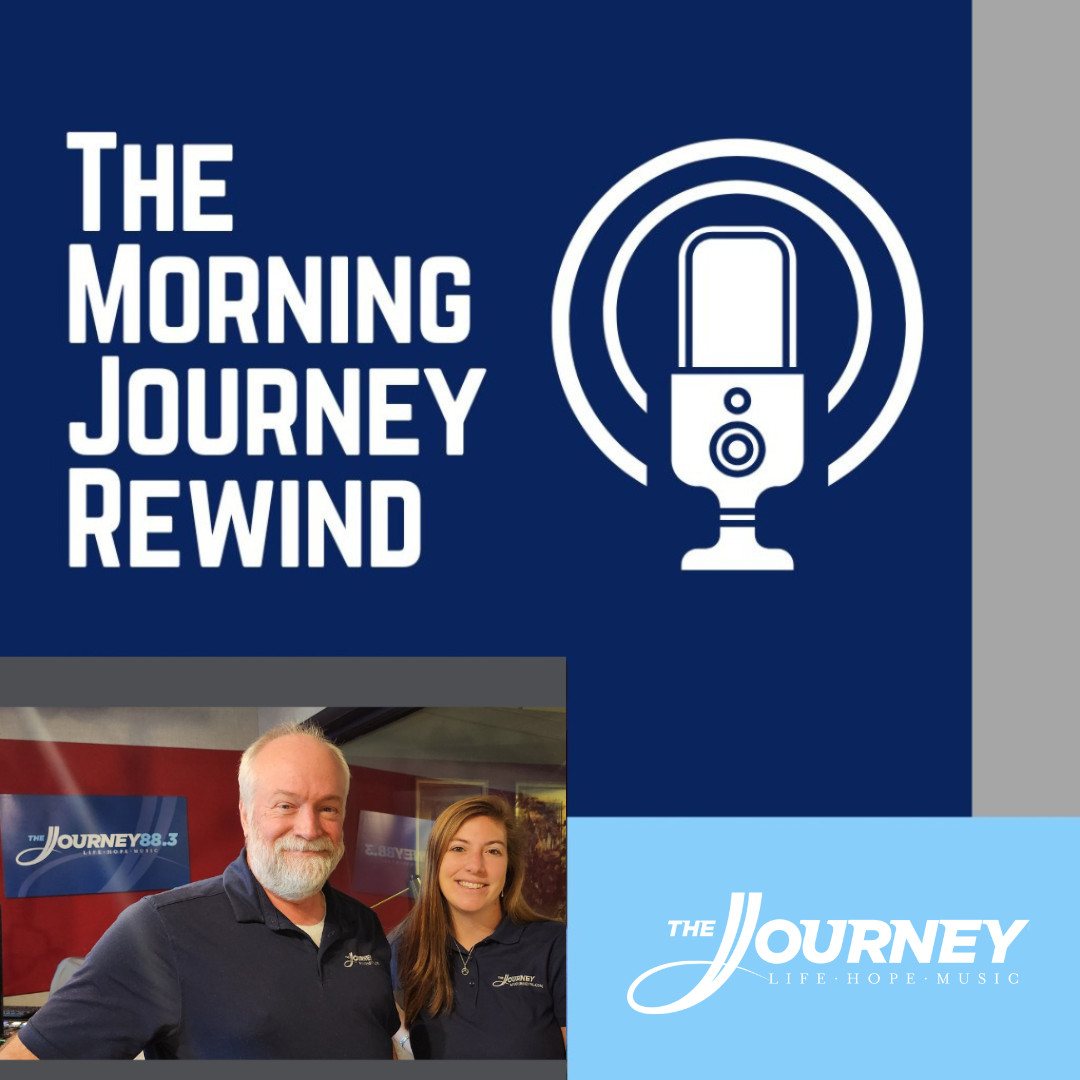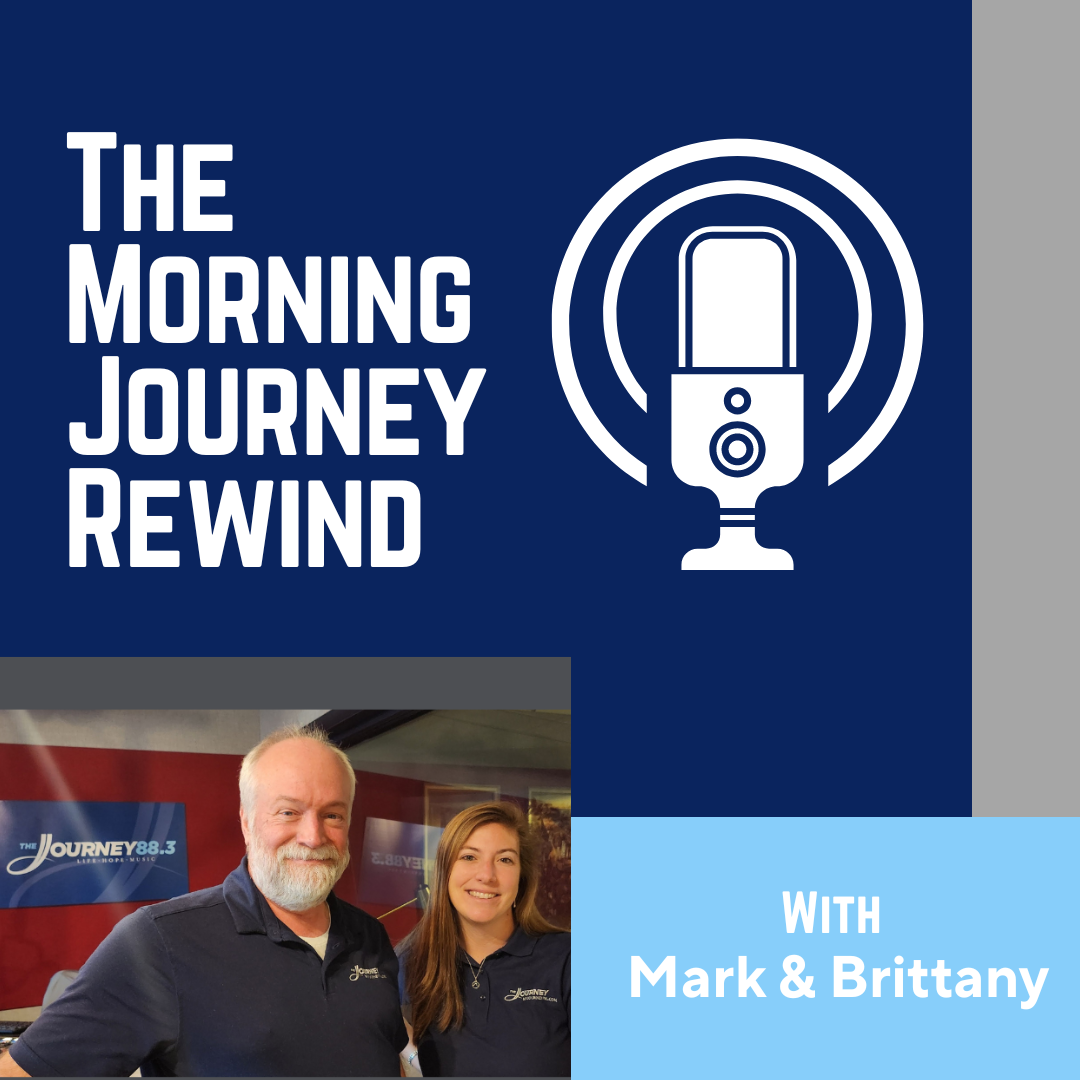Episode Transcript
[00:00:00] Speaker A: You're on the Morning Journey with Mark and Brittany and Chris from Wren Collective joining us right now, spending some time with us. Hey, Chris. How you doing?
[00:00:09] Speaker B: Hi. Doing fantastic. Thanks for having me.
[00:00:12] Speaker A: Yeah. Want to talk about this song that we're playing right now, Fight of My Life. I got to tell you, it's such an honest song about how we all have that need, desperate need for God in our lives. But there's a joy in the song as well.
[00:00:28] Speaker B: That's right. I mean, I think. Not to dive into the deep end straight away, but I think for me, what's interesting about going through a really difficult struggle as a Christian, like, for me, this song is about battle with depression, but I think it works for almost any fight that you might be in. But what's interesting about doing that as a Christian is that you don't do it on your own. You do it with God at your side. And that means that even in the middle of depression, even in the middle of the darkest moments, there actually still is this weird joy. You know, I mean, the Bible talks about, like, the peace that passes understanding. I think there's. There's kind of a joy that passes understanding as well. And I think that this song tries to kind of filter that in. You know, there's shadows there, but there's also always light. Whenever we're walking with Jesus, there's always light.
[00:01:15] Speaker C: So tell me about your family. How do you balance being interim collective and being a dad and a husband?
[00:01:21] Speaker B: Sometimes I'm worried I don't balance it very well at all. It feels like there's a lot of plates going at any given time. I'm sure.
I'm sure you can relate. Maybe that's just.
Maybe that's just what parenthood feels like sometimes. But I would say, if anything, at this point in my career, the balance is skewed very much towards family.
You know, I'm just always going to pick them over anything that might advance our career or whatever. I think I'm past the point where I'm so driven that I have the blinkers on, and I'm going to miss out on special stuff that's happening at home over the sake of a career. So I think that's why I keep it in balance.
It's just. I don't balance it, really. I just lean really hard towards family and hope that everything else works out.
[00:02:08] Speaker A: Whether it's trying to find that balance or what this song is about. Fight of My Life, about just, you know, struggles that we all go through.
What do you feel Like God's teaching you about himself when you're going through those life struggles.
[00:02:22] Speaker B: You know, I feel like the things that I've really learned is that no matter what it is, that no matter what it is that you're going through there, there always is that undercurrent of joy. I know if. I know I've talked about that a little bit, but I always think about that scripture that says, the joy of the Lord is my strength.
I think what's really special about that scripture is that it's obvious that it's meant to meet us in a. In a dark moment. That's obvious that it's meant to meet us in our weakness. You know, it's not like. It's like a bumper sticker.
It's not for. It's not for the mountaintops. That particular verse, even where we encounter in Scripture, it's at a really low moment for the people of God.
And so I always think about that. I always think about the fact that the character of God is to bring joy into those dark seasons.
I think that's what I've learned.
[00:03:13] Speaker C: Speaking of joy, that folk sound is so fun. It's so different from what a lot of people are doing right now. What made you want to go in that direction?
[00:03:23] Speaker B: I think partly because I don't know that we can do anything else.
I guess, with our kind of Irish heritage.
That's kind of the music that if you cut us open, that's what comes out. You know, we like other music as well, but for us, folk music is just the most.
It's the most authentic to our own heartbeat, I think.
And so it felt really important for us, I think, at this particular stage, just to return to something that feels comfy, you know, like throwing on that sweater that you have. You know, everybody has one particular sweater that is. That's the one, you know, that lets you know that you're home and you're comfy. Finally.
That's what folk music feels like for me. I'm happy to wear other clothes, and I think it's good fun to do it. But at the end of the day, I'm always going to come home and throw that sweater on, you know, I love that.
[00:04:22] Speaker A: So when it's folk music, what's that writing process like for you? Is it different than writing other genres of music or styles of music?
[00:04:32] Speaker B: Yeah, yeah, it is. I mean, I think that genre particularly thrives whenever everybody's in the room throwing out ideas and contributing together.
Particularly the recording process is really different in pop music. What you want to do is everybody records their part separately. And it's very.
I don't want to make a judgment here, but it can be very sterile. The pop music that we've made in the past, you're trying for perfection all the time, because pop music is very clean. Whereas this, this is not that. It's not one guy in a room singing a vocal take and then take a second, get somebody up to the drums to play a perfect drum take, and then we line them up at the end. It doesn't work like that for folk music. It's more like one mic in the middle and whatever happens, happens. And I don't know, I just have a bit of a. I have a bit of a romance around that. I just love that there are mistakes that get carried through. And I think there's something. Not to. Not to get too philosophical about it, but there's something beautiful in those mistakes. I think it speaks something to human nature. That's where the magic is. It's in the imperfections, not necessarily the perfection.
[00:05:43] Speaker C: It kind of goes back to what you said, just about being authentic and having those mistakes in there and saying, you know what, yeah, we might be the ones singing the song, but we're not perfect. And I feel like a lot of times as Christians, sometimes we write songs and sing songs to remind us of God's goodness and promises, and that's. That's good. But how do we use our platform to kind of go beyond that and draw in the non believers and show them who God is and why they need him?
[00:06:08] Speaker B: Yeah, it's really interesting. I always think about the fact that when Thomas was experiencing doubt post resurrection, he hadn't seen Jesus yet.
The thing that stirred faith in him more than anything else and the thing that Jesus knew to do was show him his scars. And I think that that's true for us as well.
I think.
I think when we show people that we haven't got it all together and that, you know, Christianity isn't about cleaning yourself up and then. And then you come and visit the king, but rather it's about the fact that the King gets down into the gutter with us.
I think that that's way more inspiring and way more real because none of that. None of us have. None of us have got this figured out.
There might be some folk out there who are pretending, but I think that that can often, to be honest, keep people at a bit of a distance. That sense of, well, you know, I could never reach this unattainable goal of being this perfect holy person and they're right. Like, none of us get there. But I guess if Christians just start being.
Just being open about being real people, I think that's way more winsome. And I'm excited, actually, because I think I see that happening already.
[00:07:23] Speaker C: I think I do, too. I think we are headed that direction now. Something a little bit lighter. Last thing. What is your favorite place to eat when you're touring?
[00:07:32] Speaker B: Wow. I mean, it's tough for me not to mention Northern Ireland here.
Fish and chips back home is a big deal. But I will say we are all very partial to.
We're all very partial to chick fil a at this point.
I know that that is a. I know that's a classic. I know it's a classic Christian answer.
But it's not just because the chickens are saved. That's not the only reason we'll eat them.
It's just a certain.
I don't know, they know what they're doing in there. I mean, you can even order a salad and it turns out fine. You know, you can't say that of any fast food restaurant.
[00:08:08] Speaker C: They're quick, too. So if you're on tour and you have a quick stop, like, they'll get you in and out of there super fast.
[00:08:13] Speaker B: That's it. And yeah, everything on the menu is always a pleasant surprise. But that's what, that's what hits me. It's like you get the chocolate chip cookie and it's 10% better than you thought it was going to be.
I think that makes a good fast food restaurant.


